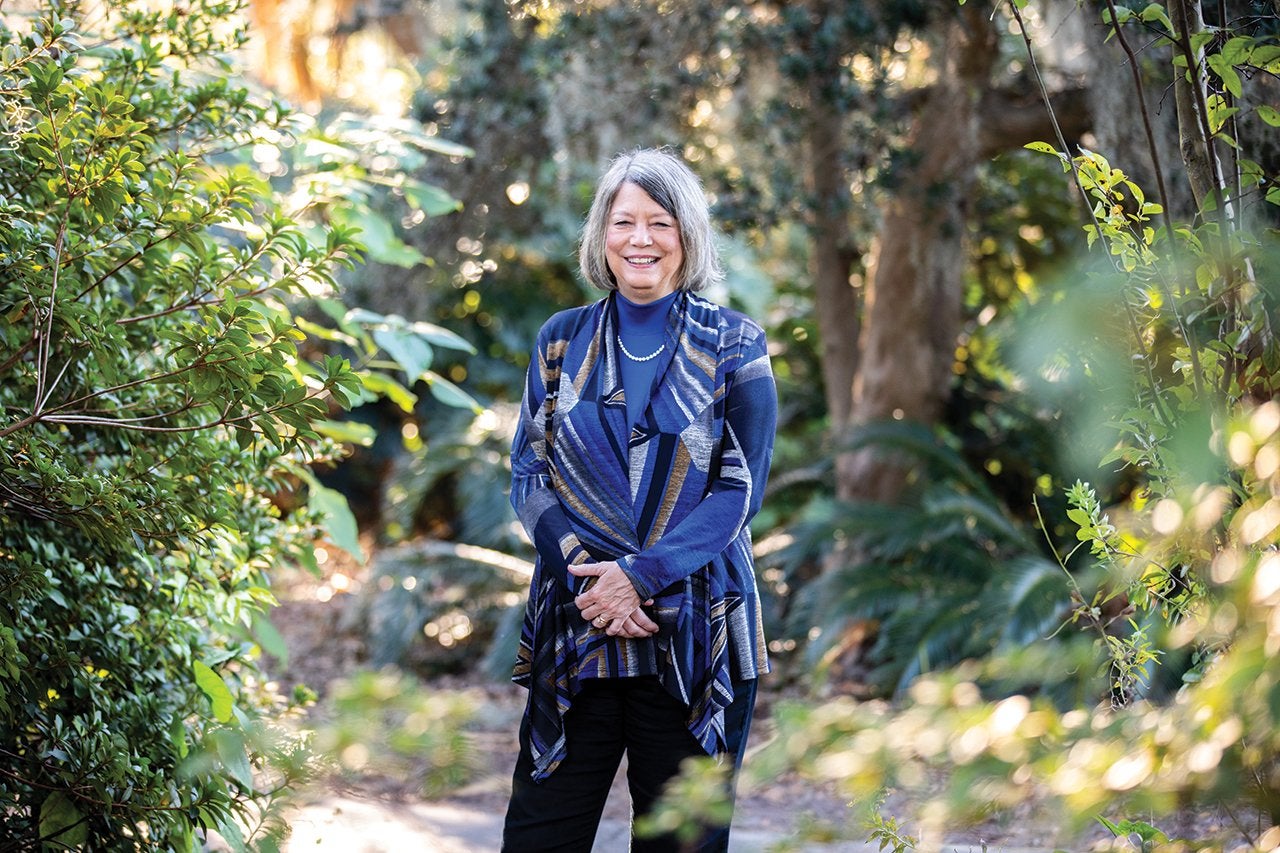Locals don’t bother with a tour of Charleston, right? That’s so … touristy! But not those led by Leigh Handal ’81. The founder of Charleston Raconteurs, she has been a licensed tour guide for more than 20 years. She’s passionate about leading small groups of people through graveyards, ruins and battlegrounds and along the Lowcountry marsh while sharing stories about the area’s history.
“History informs who we are today,” says Handal, who believes it’s important to roll your sleeves up and walk along the trails of the actual sites to look at history in totality.
When she’s not leading tours, Handal spends a lot of time researching and writing about the history of Charleston at her home on James Island, South Carolina (she also serves as chief advancement officer at the American College of Building Arts). In 2011, she helped write and edit the tour guide training manual that, until it was struck down by a lawsuit in 2018, was required reading for professional Charleston tour guides. Her most recent books are Lost Charleston, which documents the city’s greatest architectural and cultural losses beginning in 1861, and Storied & Scandalous Charleston: A History of Piracy and Prohibition, Rebellion and Revolution.
“It’s not work when you’re doing what you love,” she says with her contagious laugh. “I never get tired of telling these stories.”
An English major at the College, Handal specializes in serious history, the kind that’s based on facts, not fables. Her company offers tours that delve “deeper into the story of Charleston and exploring authentic historic places whose patina hasn’t been polished up for the crowds.”
When the editor of the Storied & Scandalous series asked her to write the Charleston edition, including stories of pirates and prohibition, she wanted to make sure this wouldn’t be just another collection of tall tales.
The book includes stories like those of lady pirate Anne Bonny. “She had the chutzpah to escape the narrow, deferential role defined for women of her day,” says Handal, who recounts the story with barely suppressed glee.
It also highlights Vincent Chicco, an Italian immigrant who opened one of the first blind tigers on Market Street in 1893. A so-called exhibition hall, a blind tiger illegally sold liquor under the guise of an admission fee. The scam involved “patrons” who paid to visit the exhibition hall and were offered a “free” drink while they watched a tiger perform.
These are just two of the tales tucked inside the pages of this well-researched and well-written book, which includes archived photographs and illustrations and, despite the flashy title, tells a legitimate history.
“The truth of Charleston is interesting enough,” says Handal, whose 2023 book is an updated edition of Charleston, Then & Now. “It doesn’t need to be embellished.”
Handal’s Top Three Locales for Locals
1. St. James, Goose Creek Chapel of Ease Historical Site – This “sacred ground” of abandoned and broken tombstones dates to 1715 and echoes with stories of Native Americans, colonists, Revolutionary War patriots, enslaved people and Civil War soldiers.
2. Hampton Plantation State Historic Site – A National Historic Landmark, the plantation, which inspired the works of South Carolina’s first poet laureate, Archibald Rutledge, the last private owner of the house, now serves as an interpretive site for the system of slavery and rice cultivation in the region from the colonial period through the end of the Civil War.
3. Any parking garage rooftop in downtown Charleston – Who needs a pricey rooftop bar when you can just bring a couple of folding chairs, a bottle of wine and some cheese and crackers to enjoy the amazing views?




